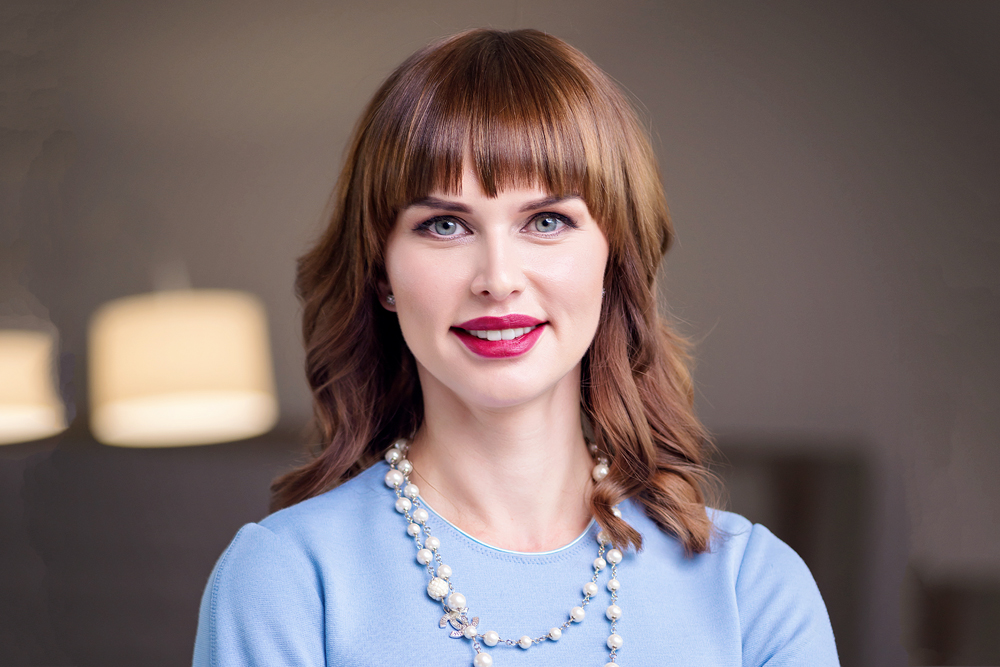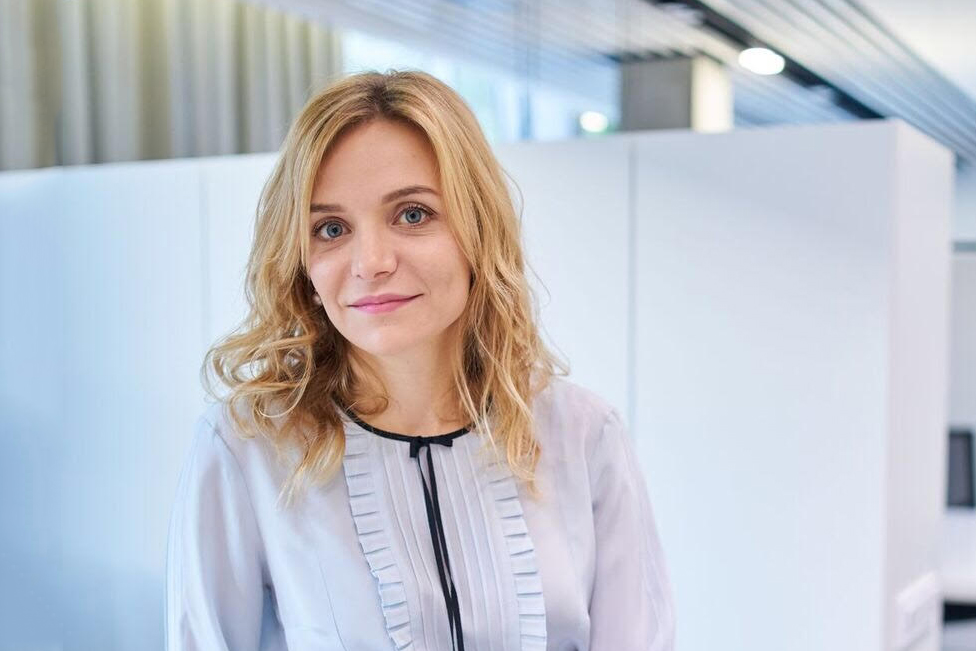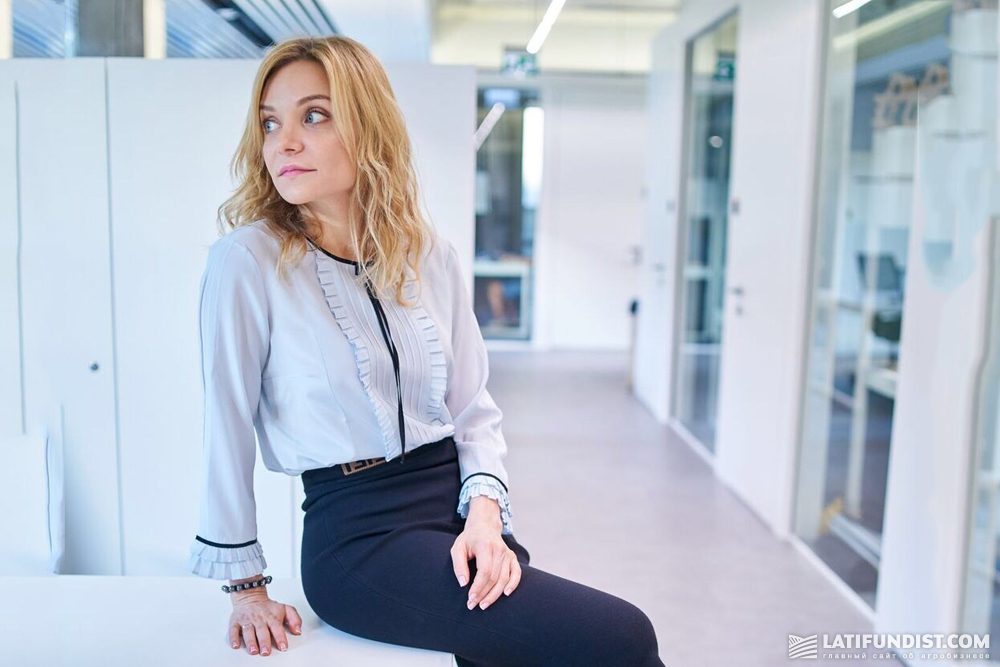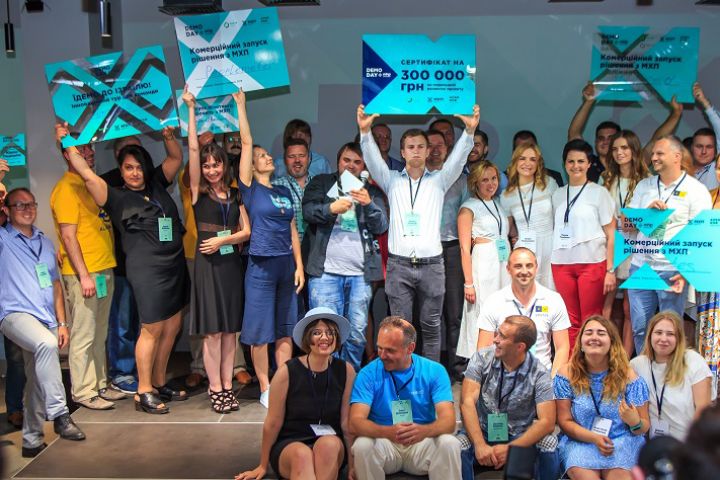Cosmic Plans or the Reason Startups Die
According to StartupNetwork, Ukraine annually produces around 500 startups, yet 90% of them fail to “fly”. To invigorate Ukraine’s startup market, the Myronivsky Hliboproduct agriholding and the Agrohub innovation platform have launched a How to Startup course. It consists of 10 free video lessons delivered by 27 experts on how to turn ideas into a successful business.
Our team interviewed Ksenia Prozhogina, HR and Communications Director at Myronivsky Hliboproduct (MHP) and founder of Agrohub, and Julia Poroshenko, co-founder of Radar Tech. Read below what to expect of the project, why the startup death-rate is so high, and how to ensure the success of your promising idea.
Latifundist.com: Could you tell us how you came up with the idea to create this educational project?
Ksenia Prozhogina: The idea was born while talking to Yuri Anatolyevich (Kosyuk — editor’s note). We discussed all the numerous applications filed by various start-up teams to MHP Accelerator. Some of them presented successful cases, others failed to pass the selection for different reasons. We thought it would be great to create another project to show how to improve those projects, what mistakes to avoid and what plan to follow to get your startup off the ground. What is more, the project could improve our expertise in cooperating with startups which we could share with others. We introduced the idea to Agrohub and they eagerly supported it.

Julia Poroshenko: It seemed a very logical idea and it would be only natural to put it into effect. We’ve worked with startups before and there are things we can share, so we’ve agreed on the project right away.
Related Story: Agri Market Needs Innovations: Presentation of MHP Accelerator
Latifundist.com: What was the initial stage of the project?
Julia Poroshenko: Our first step was to decide on the content: what topics to cover and what things to emphasize. First, we made a list of things we considered important based on our personal experience. Then, we listed the topics we had covered at MHP Accelerator and added some things suggested by our experts. Besides, we studied the syllabus of similar international courses. We found the Y Combinator course the most useful. In the end, we arrived at 50 topics we divided into 10 thematic lessons.

Ksenia Prozhogina: We participated in designing the topics. During the Accelerator, startupers asked our mentors many questions. We documented the questions to learn about their worries and interests. We’ve learned that it is important to take the scale into account. A lot of questions concerned funding: how to attract investments, where to find investors, what projects to join. Those questions helped us design the syllabus.
Julia Poroshenko: The next thing was to find the right lecturers, whose opinion mattered and who had experience in the startup business. We found around 30 such experts. We interviewed each of them for 1.5-2 hours and discussed the topics they would like to lecture on in detail. After we’d gathered their ideas in the form of abstracts and included them into lessons, we invited the speakers to brief them on some terms they might want to use in their presentations. We plan each lesson to consist of a theoretical and practical part.
Latifundist.com: Could you tell us more about the experts?
Julia Poroshenko: They have expertise in different spheres. The first group consists of successful startupers. The second is represented by investors. The third group is the media. We cooperate with Ukrainian media groups, including Latifundist. The fourth group includes representatives of startup eco-systems like accelerators and incubators who can tell about additional startup opportunities. The fifth group is formed by researchers. We’ve been cooperating with Kyiv-Mohyla Business School [kmbs] for a long time, they are our intellectual partners and they provide a theoretical foundation for this project.
Related Story: 7 Lessons on Launching a Successful Startup
And finally, the last group is the group of startup clients. I keep telling that we must build painkillers. Of course, there should be vitamins, but they are difficult to sell, so their benefits are less obvious than that of painkillers. Painkillers hit the target and solve problems, they sell themselves, but they need to know the pains of the clients. That’s why the last group includes the representatives of corporations, including MHP. The agroholding, together with Agrohub and Radar Tech, realized the MHP Accelerator project. We worked closely with startups and we can share our observations and personal experience.

Ksenia Prozhogina: During and after the Accelerator, we were carefully analyzing all the cases of the project. The needs of the client determine the success of the startup. Do you know what the best thing about the winning startup of MHP Accelerator was (the startup team was formed at one of the events of the Idea Garage project)? First of all, they understood the needs of the company and came up with a solution. Their line of thinking was: if there was a problem, our product had to become a solution. This strategy demonstrates the awareness of the market and its needs. Naturally, the team made an awesome case and their product was the winner. They’ve signed a contract with MHP and their product will hit the market soon. They’ve started taking orders from other companies as well. By the way, one of the lecturers will be the leader of the startup.
Latifundist.com: In other words, the key to a successful startup is to find a niche beneficial for the client?
Ksenia Prozhogina: Exactly! Find the niche and see the needs. It’s no good to have your head in the clouds. You should also calculate risks and write business plans. There were some “cosmic” startups, but their main problem was that they were unwilling to hear the client.
Julia Poroshenko: Another thing you need to take into account designing a startup is human performance. When we talk about introducing innovation in agriculture, many problems arise because people who are supposed to use them are unmotivated, incompetent, afraid of failure etc. We know many cases when a perfect project generating analytical information was only 10% productive because its users didn’t know what to do with it.
Related Story: Julia Poroshenko: Agrohub Opens a “Blue Ocean” to Innovators in Agriculture
Latifundist.com: Statistics suggest that 90% of startups fail. Ksenia, what projects, apart from “cosmic” ones, are bound to fail based on MHP Accelerator results?
Ksenia Prozhogina: As a rule, the projects which have no math behind them, even the simplest calculations, fail. Besides, when the team is clueless about ways to realize the project, it is doomed as well. The idea may be great, but when the team doesn’t know what to do with it, it won’t work. There were several projects that failed because their teams couldn’t find a common language during the Accelerator. There is no future for such projects.

Julia Poroshenko: Sometimes, what is lacking is the basic knowledge of financial accounting. There were cases when teams came up with relevant ideas but couldn’t set the right price for the product or create a business model because they lacked the basic knowledge of Finance and Accounting. One team planned to sell machinery for the agribusiness but when we estimated the cost of the product, it turned out they would be running at a loss. The How to Startup course is created to help avoid such basic mistakes.
Latifundist.com: Julia, you’ve mentioned you studied the examples of foreign educational courses. Is there much difference between the level of startup knowledge in, say, the US and Ukraine?
Julia Poroshenko: We’ve been working on future accelerators and their improvement. I’ve recently talked to a representative of the company which designs educational courses for accelerators. I asked if there was any difference in the startup syllabus around the world (that would be about 37 countries). They say that the syllabus is mainly the same in any country. The skill-set of a startuper in Ukraine or Singapore is similar. Obviously, the level of knowledge may differ, but that depends on learners rather than their country of origin.
Latifundist.com: At what stage is How to Startup now?
Julia Poroshenko: We’ve aired 5 video lessons and prepare the sixth one to go on air. We are also working on other lessons.

Latifundist.com: What does a video lesson include?
Julia Poroshenko: Each lesson is 15 minutes long. It may contain presentations of 2-8 different speakers. The information is delivered in a form of an interview. The host — Tania Grinuova — interviews the experts. It is a popular practice around the world to present educational information in an entertaining manner. We use edutainment in our video lessons as well. The information flow is easy and anything but boring.
Latifundist.com: Who are the experts?
Julia Poroshenko: Our lecturers are well-known and respected. Those were the two main criteria for their selection. Our audience needs to trust their lecturers. Some of the names include such famous startupers as Denis Dovgopoliy, Tatiana Romaniukha, Anna Petrova, Alena Kalibaba, Kateryna Dehtyar, Ron Fridman, Oleg Koss, Maria Romanova, and others.
Ksenia Prozhogina: MHP will be represented by several mentors from MHP Accelerator. The teams under their mentorship have won the MHP support for launching the projects and they continue to cooperate with the holding. The mentors are Sergei Ivanov, Deputy Head of Commerce and Marketing, Konstantin Verbato, Head of Project Implementation and Digitalization, Andrey Kiyanenko, Head of MHP’s Innovation Implementation Department and other speakers.
Latifundist.com: As far as we understand, How to Startup is not strictly for agrarians, is it?
Ksenia Prozhogina: No, it’s not. The basic startup principles are the same despite your sphere of activity. The course is about starting a business and it will suit anyone interested. Its primary audience is the newbies. They will find the most comprehensive information here, but I think there will also be something for every entrepreneur and manager. Besides, not many people know about the Accelerator. Not all of those who do know can join it, some are simply afraid to apply. How to Startup is aimed to reach a wide audience. Our objective is to empower people to critically analyze whether their idea is the business material or it needs improvements.

Latifundist.com: What do How to Startup and MHP Accelerator mean to MHP?
Ksenia Prozhogina: At first, we designed MHP Accelerator as a social project, but we were pleasantly surprised and rewarded by the fact that the teams could offer us efficient and much-needed solutions MHP uses today. MHP is a large holding and we understand that the development of business in Ukraine depends on us. Being an HRD, I know first-hand how many young talented people leave Ukraine because they see no way of creating anything here, so they sell their ideas abroad. With the help of the Accelerator and the How to Startup project, we want to give small business a chance and show that it is possible to make money at home.
There is an opinion that corporations and startups compete. That’s wrong. They represent different business models. The country’s economy needs both. The more small businesses compete, the better solutions they generate. In the end, everybody wins, the small business and the industry.
Latifundist.com: Thank you for the talk! Good luck with the project!
Ekaterina Nikonchuk, Konstantin Tkachenko, Latifundist.com

